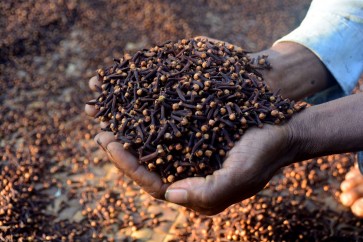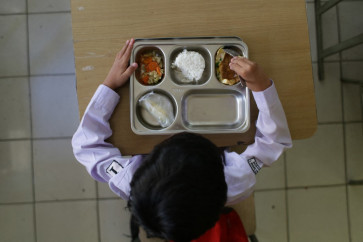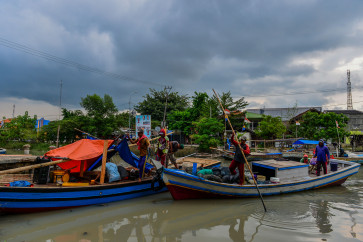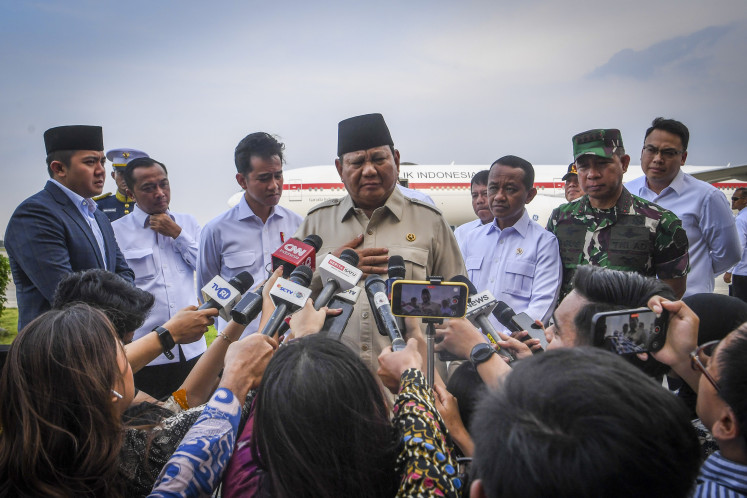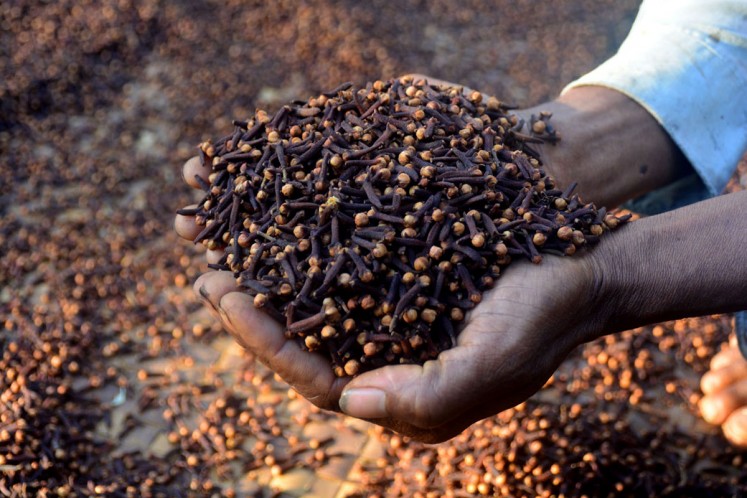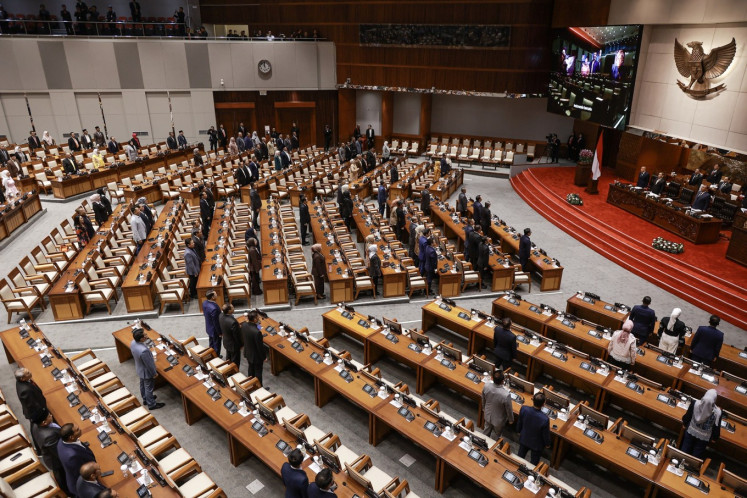Popular Reads
Top Results
Can't find what you're looking for?
View all search resultsPopular Reads
Top Results
Can't find what you're looking for?
View all search resultsOn-demand drivers unite: ‘Ojol’ groups look out for each other, aid motorists
Clad in their black-and-green jackets and riding their motorcycles all around the city, a sense of camaraderie exists among the drivers of ojol (on-demand motorcycle taxis)
Change text size
Gift Premium Articles
to Anyone
C
lad in their black-and-green jackets and riding their motorcycles all around the city, a sense of camaraderie exists among the drivers of ojol (on-demand motorcycle taxis).
Most ojol drivers look out for their fellow drivers, regardless of which company they work for, while others have created mobile communities.
One such ojol community is the Balang Ijo (Green Cross) — a wordplay on Red Cross. The community was formed on Feb. 4, 2016, to build solidarity among ojol drivers and to provide first aid to members or other motorists on the road.
“The rate of motorcycle accidents is quite high, so we want to help everyone who has met with an accident,” Balang Ijo secretary Dadang Supriadi said on Sunday at a discussion organized by ride-hailing company Gojek.
The number of ojol drivers has continued to increase over the last few years, with some estimating that it now reaches more than 1 million in Greater Jakarta.
Meanwhile, the Jakarta Traffic Police have recorded 5,400 traffic accidents that occurred in January to November 2018 in Greater Jakarta, 4,225 of which involved motorcycles.
Dadang said that Balang Ijo had about 40 key members — all Gojek drivers — and that five had been trained in first aid. He added that Balang Ijo had a WhatsApp group through which its members reported any traffic accidents they had spotted.
“[...] We are on standby with gauze and NaCL [saline] to clean minor wounds, or use clean mineral water,” said Dadang.
For cases that required professional medical treatment, Balang Ijo would call for Gojek’s ambulance service to transport the victim to the nearest healthcare facility. Dadang said that Gojek operated two ambulances in Jakarta that had been working with Balang Ijo for around a year.
Another ojol community is the Elite Squad Fighter, which started out as an informal group of Gojek drivers that hung out together during breaks. The group is inclusive and welcomes drivers who have hearing loss.
Fika Chasasmeta said that Elite Squad Fighter had been around since December 2017. It formed a subcommunity for deaf drivers in September 2018, when she learned that some deaf ojol drivers faced difficulties in their day-to-day activities.
“We want to help our deaf [ojol drivers] in their daily lives ,” said Fika.
She said the subcommunity had 90 members, 80 of whom were deaf or hard of hearing. The 10 other members did not have hearing loss and simply wanted to help.
Besides providing support for deaf drivers, Fika said the group gathered every Saturday to study Indonesian Sign Language (Bisindo) together, as a formal Bisindo course cost money.
Achsanul Solihin, a member from East Jakarta, said on Monday that the group also had a rapid response team, or URC, for providing assistance in traffic accidents.
Arsanul, who is on the team, said that URC members generally carried a first aid kit, especially members who had received first aid training.
URC members kept an eye out for traffic accidents while they were on the road, and received updates through a chat group.
“We don’t seek out traffic accidents, but if we pass by [an accident], we help by sharing the location,” he added.
If they came across someone with minor injuries, the URC member would transport the victim to the nearest ojol gathering point to provide first aid treatment. If the victim needed medical treatment, the URC member would transport the victim to the nearest hospital or health clinic.
Meanwhile, Gojek said that it was affiliated with at least 5,000 ojol driver communities.
Gojek transport marketing vice president Monita Moerdani said the company appreciated the drivers for creating their own communities, and that it had launched the #PenjagaAmanah (trusted guardians) digital campaign to raise nationwide awareness of the ojol driver communities as well as individual Gojek drivers.
“We hope that, in the future, there will be more #PenjagaAmanah partners [drivers] in communities or as individuals to do more for social causes and [for Indonesia],” Monita said at Sunday’s discussion.
She said the company was also making efforts to improve customer experience, including a two-way rating system through which customers and drivers can rate each other and give feedback.
Gojek was also offering a variety of training programs for its partner drivers in cooperation with Rifat Drive Labs, from English language to first aid, and from anti-sexual harassment to driving safety.
Separately, Grab Indonesia managing director Neneng Goenadi also said that the company appreciated that some of its drivers had taken the initiative to created their own communities like the URC and the Sahabat Grab Club (SGC).
“Some of these communities are not exclusive. Anyone who wants to can join and contribute. Grab is happy to support them in developing their activities, for example by providing additional training,” Neneng told The Jakarta Post by email on Monday.
She added that the company was supporting its drivers and their communities by setting up the Grab Mitra Sejahtera program and the GrabAcademy online training program to help improve their livelihood.


